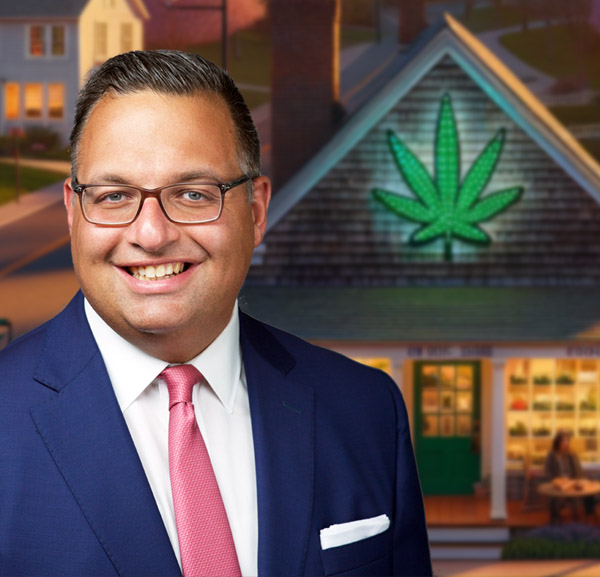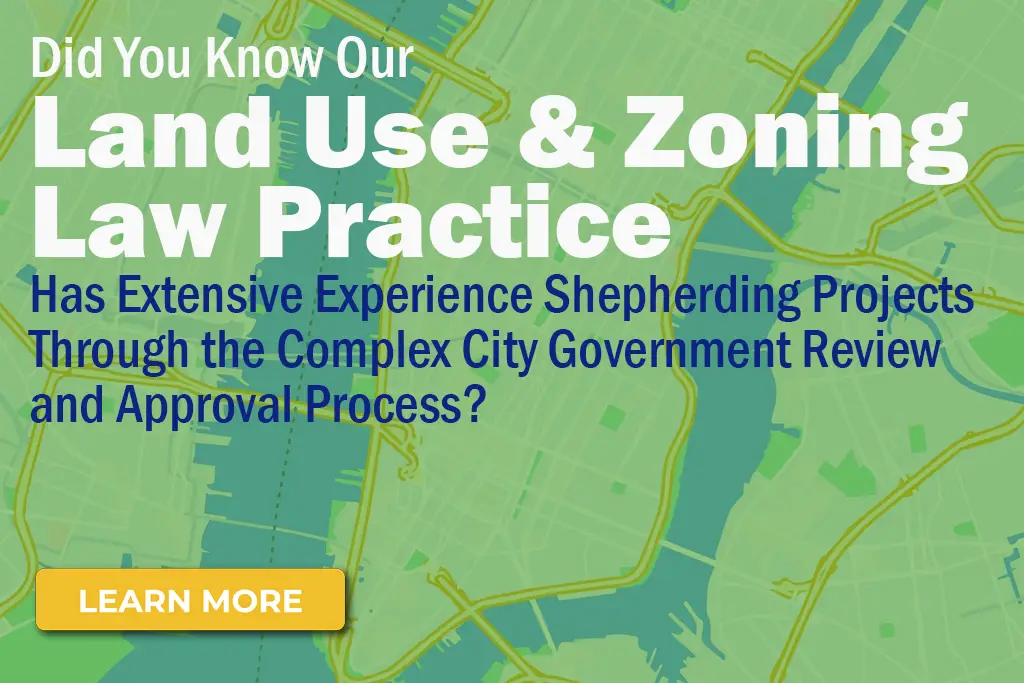Clearing the Cloud: 3 Crucial Steps for Dispensary Entrepreneurs to Master New York's Adult-Use Cannabis Regulations

By Nicholas T. Terzulli, Senior Counsel |
Key Takeaways:
- The initial application windows for New York’s general adult-use cannabis licenses closed on November 17, 2023, for applicants who could demonstrate location control (evidenced by a signed lease or deed for the property), and on December 18, 2023, for those without location control.
- Numerous applicants and potential entrants aiming to penetrate New York’s adult-use cannabis market are met with a myriad of inquiries, logistical challenges, and paperwork.
- The adult-use cannabis market is subject to rigorous regulation, presenting formidable obstacles related to corporate structure, real estate acquisition, land use zoning, and compliance matters.
- Comprehending New York’s Adult-Use Cannabis Regulations (referred to as the “Regulations”) is imperative for effectively maneuvering through bureaucratic processes, obtaining licensure, and launching a thriving enterprise.

The commencement of last year’s application windows for adult-use cannabis in New York marked a crucial initial phase in the much-anticipated establishment of the state’s legal adult-use cannabis market.
Nonetheless, the regulations governing this burgeoning industry have presented significant challenges for aspiring retailers seeking to open dispensaries in New York, necessitating navigation through a complex, time-consuming, costly, and bewildering process.
While demanding, achieving success within this landscape is feasible. Prospective dispensary owners must undertake three essential steps to position themselves for success.
Three Crucial Steps
- Pursue an Adult-Use Cannabis Dispensary License: While the initial application windows have closed, anticipating future openings by the New York State Office of Cannabis Management (OCM) is prudent. Understanding the True Party of Interest disclosure requirements and selecting an appropriate corporate structure are vital considerations for applicants and their investors. Moreover, securing Social and Economic Equity (SEE) status can significantly enhance the likelihood of license acquisition.
- Navigating the Real Estate Landscape: Securing the ideal location is paramount for the success of any dispensary venture. However, the process can be protracted, fiercely competitive, and laden with complexities. Regulations stipulate precise measurement requirements concerning proximity to sensitive establishments such as places of worship, community centers, schools, and existing dispensaries. Familiarize yourself thoroughly with these requirements as they are non-negotiable.
- Opt-In Considerations: While New York State has legalized adult-use cannabis, individual municipalities retain the authority to opt-in or opt-out of permitting adult-use cannabis dispensaries within their jurisdiction. Many municipalities across New York have chosen to opt -out. It is imperative for potential applicants to ascertain whether their target municipality has opted in before committing to real estate in the area.
- Zoning Regulations: Delving deeper into the opt-in issue, applicants must understand the zoning regulations specific to municipalities that have opted in. For instance, certain municipalities may restrict adult-use cannabis dispensaries to industrial zones, potentially impacting business strategies reliant on foot traffic.
- Location Selection: Armed with an understanding of opt-in and zoning considerations, applicants must embark on the quest to secure a suitable location. Competition for available space can be intense, particularly in municipalities with limited dispensary operating zones. Moreover, navigating restrictive provisions within mortgage and lease agreements, which may prohibit cannabis as a permissible use, adds another layer of complexity to the location selection process
- Establish Your Distinct Identity: In a nascent industry like legal adult-use cannabis, differentiation is key to standing out amidst competition from both legal and illicit markets. Crafting a unique value proposition that resonates with consumers is essential. Developing a creative yet compliant social media and marketing strategy is paramount, ensuring visibility within legal boundaries prescribed by regulations.

Securing a cannabis license is a collaborative endeavor. With a regulatory framework spanning over 340 pages, intricate real estate considerations, and the necessity of establishing an advantageous corporate structure, cannabis entrepreneurs benefit greatly from legal guidance to navigate New York’s adult-use cannabis market effectively. Engaging a comprehensive law firm ensures thorough coverage of all facets of the application and licensure process.
Summary.
Don’t risk missing out on the opportunity to establish a legal dispensary by proceeding without seasoned legal counsel.
About the Author
Nicholas T. Terzulli is Senior Counsel in Cannabis Law, Corporate & Securities Law, Government Relations, Economic Development & Tax Incentives Law practices. Representing over 50 cannabis-related entities in the New York adult-use market, Nick has secured one of the first Conditional Adult Use Recreational Licenses in New York and continues to help New Yorkers achieve their dreams of cannabis entrepreneurship.
Read More From This Author
Click on any image above to read the article.
Disclaimer: Using, possessing, distributing and/or selling non-hemp cannabis and cannabis-related products is illegal under federal law, regardless of certain state laws that decriminalize such activity. Businesses and individuals should be aware that compliance with state law does not assure compliance with federal law, and there is a risk that conflicting federal laws may be enforced in the future. Legal advice provided by Davidoff Hutcher & Citron LLP is designed to counsel clients regarding existing and/or proposed cannabis laws. No legal advice we give is intended to provide any guidance or assistance in violating federal law.




